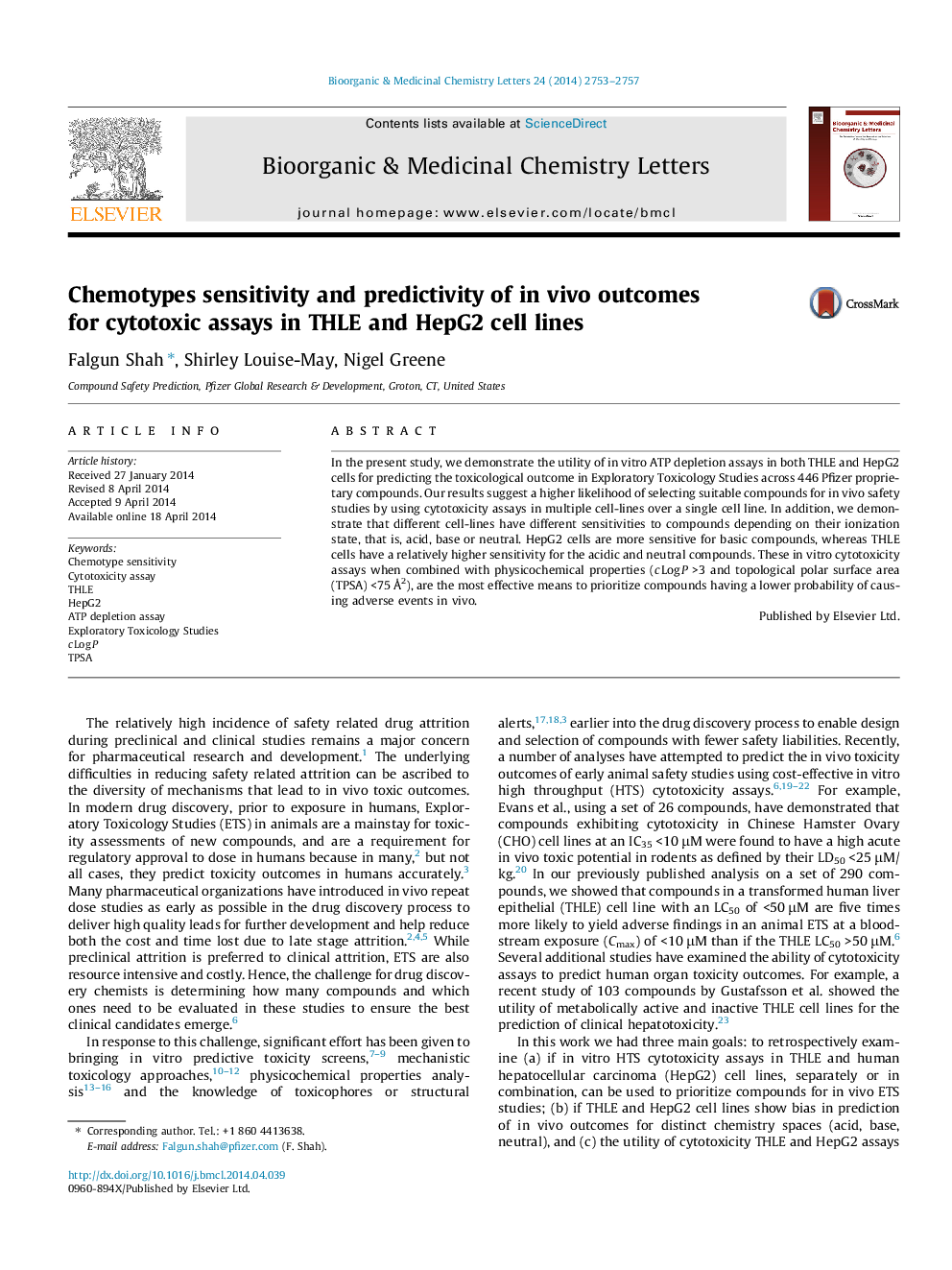| Article ID | Journal | Published Year | Pages | File Type |
|---|---|---|---|---|
| 1369326 | Bioorganic & Medicinal Chemistry Letters | 2014 | 5 Pages |
In the present study, we demonstrate the utility of in vitro ATP depletion assays in both THLE and HepG2 cells for predicting the toxicological outcome in Exploratory Toxicology Studies across 446 Pfizer proprietary compounds. Our results suggest a higher likelihood of selecting suitable compounds for in vivo safety studies by using cytotoxicity assays in multiple cell-lines over a single cell line. In addition, we demonstrate that different cell-lines have different sensitivities to compounds depending on their ionization state, that is, acid, base or neutral. HepG2 cells are more sensitive for basic compounds, whereas THLE cells have a relatively higher sensitivity for the acidic and neutral compounds. These in vitro cytotoxicity assays when combined with physicochemical properties (c Log P >3 and topological polar surface area (TPSA) <75 Å2), are the most effective means to prioritize compounds having a lower probability of causing adverse events in vivo.
Graphical abstractFigure optionsDownload full-size imageDownload as PowerPoint slide
